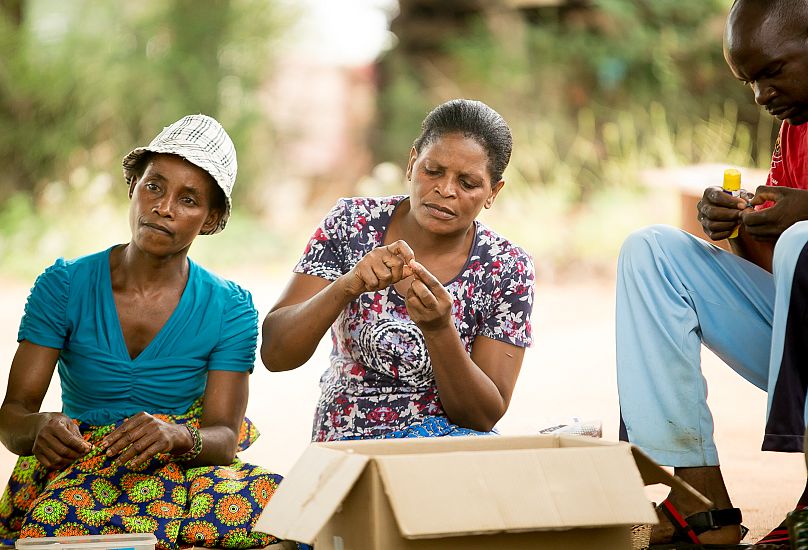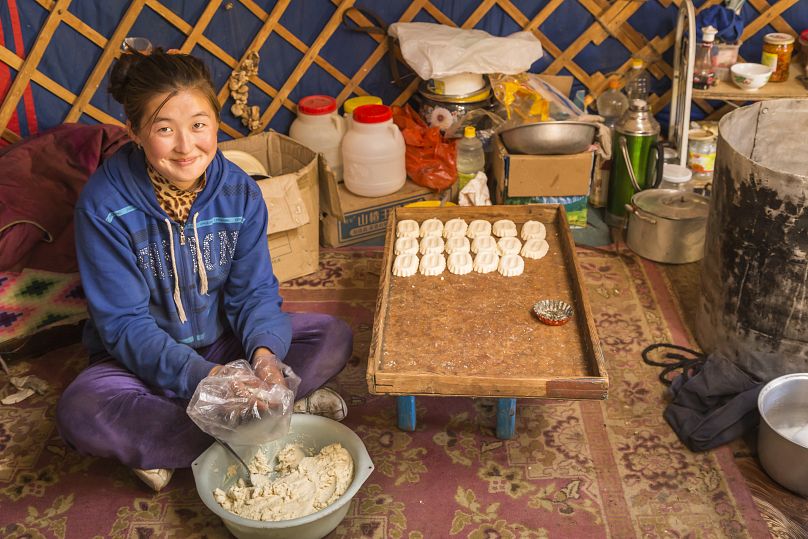Jenny Southan talks with three industry experts about how to take part in community immersion trips responsibly.
In 2021 and beyond, revitalising human connections and directing funds straight into the pockets of those who need it most will be an important part of the sustainable travel experience.
 ADVERTISEMENT
ADVERTISEMENT
 ADVERTISEMENT
ADVERTISEMENT
However, in the age of contagion an extra degree of care will need to be taken to protect not infect the people we come in contact with when we go overseas, especially if they are living in remote communities.
Here, three travel industry experts share their views on how to experience 'community immersion' trips in an ethical and socially responsible way.
Alice Gully, co-owner of Aardvark Safaris:
When it comes to responsible tourism that employs, supports and engages with local communities, many African lodges and camps are well ahead of the curve – look at the likes of Volcanoes Safaris, African Bush Camps (which has launched a new Community Conservation Safari), Great Plains and Sarara, which is collectively owned by approximately 2,400 Samburu families.
By staying in camps like these, guests are directly supporting local communities. It is a key part of tourism to Africa and many of our guests request community interaction as part of their trip.
As a company, we favour camps with local guides who have kids at the local school and friends who run the anti-poaching unit. It’s more authentic if your guide is showing you the area on a personal level rather than a commercial one.
Justin Francis, co-founder and CEO of Responsible Travel:
Being a responsible tourist is about being aware of, and taking responsibility for, your impact on the places you visit – not only on climate and nature, but on communities too. We should always remember that when we travel, we’re visiting places others call home.
Visiting remote Indigenous communities can be a very positive exchange all round. For us, it can be a way to experience a place and its history in a deeper way, learn about ways of life different to our own – as well as our many similarities – and about local habitats and wildlife from those who know them best.
For communities, it can help educate others about their history and culture, provide income to help preserve their traditions and livelihoods, and help them protect local habitats – in the Amazon, or the Maasai Mara, for example.
But if a visit lacks sensitivity and research, it can certainly be harmful. The first thing we should question is our own motivation – are we searching for a genuinely meaningful exchange, or just an Instagram post?
One key point is to ensure in advance that the group has been consulted and permission granted – booking through a local operator with a readily-available responsible tourism policy is really important.
Before booking, we should understand the social, historical and political context, any issues affecting the communities.
We can check if the community owns and manages the land we plan to visit, and how to ensure our stay directly benefits them – for example, by staying longer, employing local guides and ensuring as much of our money as possible stays in the community.
Obviously, amid the global pandemic there are additional considerations, and we need to take good care to keep others safe and prevent the spread of Covid-19 to remote communities.
Visit Responsible Travel here.
Tom Marchant, co-founder of Black Tomato:
We think immersion and connection are going to be hugely important in 2021 and spending time with local communities has always been a cornerstone of the experiences we offer.
For example, our service Bring It Back speaks to this with experiences in the Mongolian Steppe, where travellers are embedded in the nomadic communities of the Bayangobi, learning to be self-sufficient and seeing how local people’s interconnected family life can contribute to overall relationship health.
That being said, our approach to spending time with local communities has always been rooted in sensitivity and the specific situations of each group, ensuring that whatever we are doing with them will support them and contribute positively.
With Covid, this means ensuring that these kinds of trips are only running once we can be sure that they would not negatively impact the communities and would be based around their willingness to have outside contact.
Jenny Southan is editor and founder of travel trend forecasting agency Globetrender.












